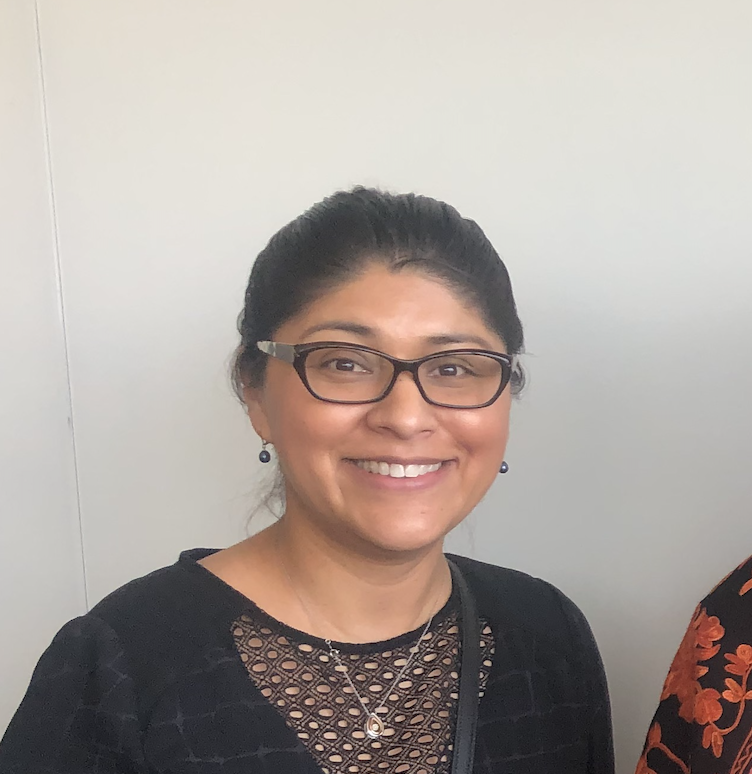Supporting Underserved Hard-of-Hearing Children: Faculty Feature with Tanya Flores
By Corinne Clarkson

Tanya Flores
When parents discover their child is hard-of-hearing, they often are presented with two options. They can elect for hearing technology such as hearing aids or cochlear implants, allowing the child to hear and speak their native tongue or they can forego these technologies and teach them to communicate through American Sign Language (ASL). For the former option, some elementary schools offer assistance through Listening and Spoken Language (LSL) programs to help these children as they progress through school.
While researching Dual Language Immersion programs in her local elementary schools, Tanya Flores, associate chair of World Languages and Cultures at the University of Utah, discovered a school with a Spanish DLI program that also housed an LSL program for hard-of-hearing children. She learned that 60 percent of the children in that LSL program were Latino/a, many of them with Spanish as the primary language spoken at home. Most of these families chose LSL over ASL to allow their children to communicate with their Spanish speaking loved ones. The ASL program also operates logistically in English, and this creates an added barrier for many minority families.
Flores realized there was a lack of communication with Latino families regarding medical and educational programs and many families needed more language-appropriate information and support to care for their hard-of-hearing children. The LSL program only assists students through the second grade, leaving many families unprepared for what to do next. Flores immediately reached out to the LSL program director at the Utah School for the Deaf and Blind to discuss the needs of the Latino families and identify ways she could help to alleviate the situation.
After successfully receiving a University of Utah grant to fund a linguistics and education project, Flores organized a committee of parents and LSL leaders to create an educational program that provided Latino parents with the information they wanted and needed for their hard-of-hearing children. The collaborative project resulted in a Spanish speaker series. Using grant funds, Flores hired Spanish-speaking medical and educational professionals who could talk to parents and answer their questions, giving them stage-by-stage information as needed. The speaker series also worked as an informal mentoring program among parents, allowing veteran parents to share their knowledge with parents of younger children who were just beginning the program. From the speaker series, Flores created a resource handbook for Latino families, which has been recently updated and republished. In addition to these education and community-building projects, Flores and her team of student researchers also analyzed deaf students' linguistic progression by recording and tracking their language development.
Speaking about the linguistics research side of the project, Flores said that though it is an interesting topic, it is severely understudied. She also works around different political and cultural complications throughout the research. However, even with these challenges, Flores’ project was very successful. "[The project] was designed to help Spanish-speaking families of deaf and hard-of-hearing children gain access to necessary health, education and local resource information, and we did that," she explained. "An added bonus is that it also helped with community building among the local families with deaf children who otherwise didn't know each other because their children are different ages."
Throughout her career, Flores has worked on various linguistic projects, ranging from her work with Chilean Spanish phonetic variation to studying generational language acquisition in Japanese-Spanish bilingual communities. A common thread among her projects is the desire to study different communities and facilitate the study and understanding of groups who don't receive as much attention in scholarly research.
Flores loves involving students in her research, and ever since her first year at the U, she has had undergraduate students helping her with projects. She also works with graduate students and serves on committees overseeing their research projects. "I am forever grateful I got Tanya as my professor twice," said Jorge Vargas Mutizabal, doctoral student. "I enjoyed learning from her robust knowledge of phonology and sociolinguistics. My experience as a student would not have been the same without her support."
Erik Garabaya-Casado, now an associate instructor of Spanish at the U, worked closely with Flores and chose her as his thesis committee chair. He said, "It was a great experience working with such a knowledgeable and empathetic professor, always ready to help me with my research and ensure I had the resources I needed.”
Flores' colleagues also appreciate her ability to build up those around her while going the extra mile. "Tanya is a tireless and organized administrator and stellar professor and researcher," said Isabel Dulfano, professor in the World Languages Department. "Over the years, she has contributed to research in sociolinguistics and community outreach projects that make a difference. In the classroom, she brings her expertise to pressing contemporary issues related to the changing nature of language and its impact on society. She always contributes to the betterment of our Spanish program, World Language Department and the university's mission to impart knowledge and uphold student learning."
Whether she is working to improve the lives of families in her Utah community or in communities around the world, Flores is constantly looking for more ways to learn and grow. Her vast knowledge and expertise in Spanish and linguistics, along with her strong leadership skills, makes her a valuable asset to the U’s World Languages and Cultures Department.
MEDIA CONTACTS
Jana Cunningham, University of Utah College of Humanities
jana.cunningham@utah.edu | 801-213-0866
Published September 26, 2023
